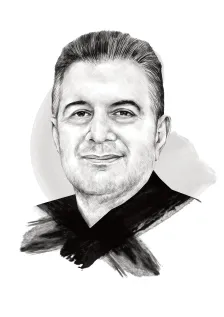It all started on 11 April when Elon Musk tweeted the letter "X" symbol without any further explanation.
X
— Elon Musk (@elonmusk) April 11, 2023
It was soon revealed that the tweet announced a merger between Twitter, the giant social media company, and Musk's X Corp. The move will be the end of an independent era for the site known for its blue bird logo ahead of a new, expanded life as an “everything” application.
Musk’s ambition is to establish the most potent fintech company in the world. He outlined it in March at a Morgan Stanley conference on technology media and telecoms.
A decades-old vision
This story is a continuation of a vision that goes back more than 20 years from when Musk, Harris Ficker, Christopher Payne, and Ed Ho co-founded X.com in 1999. This digital bank later became PayPal, one of the largest and most influential online payment companies globally.
In October 2022, Musk saw his controversial acquisition of Twitter as a catalyst to accelerate the creation of the X application via the social media platform.
This a is MUST watch. @elonmusk calls out the state media BBC for their lies and misinformation. Watching Elon defy the establishment is the entertainment I didn’t know I needed. pic.twitter.com/TVIEHzWWeQ
— Layah Heilpern (@LayahHeilpern) April 12, 2023
He had already promised on several occasions to turn Twitter into the most valuable financial institution in the world, despite admitting that the acquisition was a painful and stressful experience in a widely watched interview with the BBC last week.
Super-sized X, the everything app
Musk, the second richest person on earth according to the latest Forbes rankings, fulfills his intentions and follows through on his plans, but he waits for the right time to bring in the harvest.
It could transform the online lives of 238 million Twitter users if Musk grows the first super-app in the West. It may feature a unique, packaged offering of services, the like of which fintech firms have always dreamt of, a gold-standard combination of PayPal from the US, Sweden’s Klarna and the UK’s Revolut.




